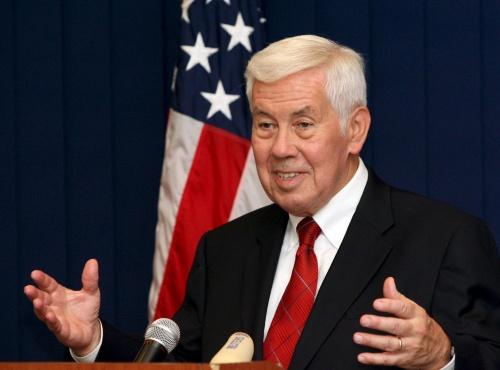The Upside of Government Default
There is a good chance that the
U.S. government will be forced to default on its explicit and implicit
promises within the next few decades. Fortunately, the state government
experience of the 1840s suggests that this may provide the best and most
durable long-run solution.
How Taxing the Rich Harms the Middle Class
‘Rich corporations’ don’t pay taxes. Workers do.
Bitter Sweet: How Big Sugar Robs You
That Valentine’s Day hand on your back pocket billfold is not your sweetheart’s, it’s the sugar lobby’s.
Blood Diamonds Are Mugabe’s Best Friend
The Kimberly Process has become a whitewash; Roger Bate reports from Africa.
The confiscation of white-owned farms precipitated the destruction of its economy; mad monetary policies led to the worst hyperinflation in Africa’s history; politically manipulated food distribution caused malnutrition; and, with woeful sanitation infrastructure, the already-weakened population succumbed to a cholera epidemic, plunging life expectancy to 35 years of age.
US: Growing risk posed by Iran-Venezuela axis – by Sen. Richard Lugar
 The
growing and deepening alliance between the mullahs of Iran and the
America-bashing leader of Venezuela, Hugo Chávez, poses a serious threat
to U.S. national interests, but the Obama administration has been
behind the curve in appraising these risks and forging effective
policies to counter them.
The
growing and deepening alliance between the mullahs of Iran and the
America-bashing leader of Venezuela, Hugo Chávez, poses a serious threat
to U.S. national interests, but the Obama administration has been
behind the curve in appraising these risks and forging effective
policies to counter them.US: Obama is America’s Lenin – by Jeffrey T. Kuhner
 Why
does President Obama despise Christianity? Recently, his administration
ruled most religious organizations must provide health insurance to
employees that covers free contraception and sterilization procedures —
including the morning-after pill. The decision provoked a furor among
Catholics and non-Catholics. They rightly understood that the
contraceptive mandate violates religious freedom and the conscience
rights of the Catholic Church.
Why
does President Obama despise Christianity? Recently, his administration
ruled most religious organizations must provide health insurance to
employees that covers free contraception and sterilization procedures —
including the morning-after pill. The decision provoked a furor among
Catholics and non-Catholics. They rightly understood that the
contraceptive mandate violates religious freedom and the conscience
rights of the Catholic Church.US: That jobs thing sure didn’t last long – by Paul Driessen
 President
Obama “is focused like a laser on putting people back to work,” Rep.
Debbie Wasserman Schultz (D-Fla.) assured us last fall — echoing
repeated statements by President Obama and Administration officials who
“can’t wait” for Congress or others to take action and create jobs.
President
Obama “is focused like a laser on putting people back to work,” Rep.
Debbie Wasserman Schultz (D-Fla.) assured us last fall — echoing
repeated statements by President Obama and Administration officials who
“can’t wait” for Congress or others to take action and create jobs.
No comments:
Post a Comment